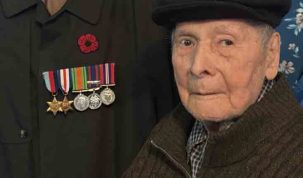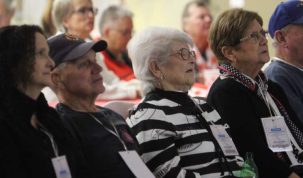By Cecilia Nasmith/Today’s Northumberland
A more efficient transit system that is also more convenient to the users is the aim of a proposed pilot project for Cobourg, council heard at this week’s meeting.
Nicole Harvey of RideCo was joined by a representative of Pacific Western Transit to describe how the move from a route model to an on-demand model might work for a pilot project in Cobourg by describing how it works in bigger and smaller communities.
On-demand transit in North America originated only a few years ago, the Pacific Western rep said, and their model is working in four of the 10 largest North American cities, from Calgary to Los Angeles.
Harvey said they hold 38 contracts across Canada, the newest one in Edmonton all set to launch. She described it as “a complete point-to-point town-wide on-demand service.”
Rides can be booked on an app or by phone or in person at a kiosk in a public place such as a library.
“Every passenger is promised a guaranteed pick-up window and a guaranteed arrive-before time,” Harvey said.
The system reoptimizes every 30 seconds to stay up-to-date as bookings come in.
The booking process consists of logging in and answering questions about pick-up point, destination and any special needs such as disability issues. If you are a commuter and know your daily needs ahead of time, you can book rides up to three months into the future.
Payment is typically by credit card, and special offers are available – reduced fares for new users on an introductory basis, for example, or discounts for certain groups like municipal employees.
Councillor Nicole Beatty pointed out that many users just may not have access to the internet or even cell phones, so she liked the idea of a public kiosk.
“I am thinking already of the library,” Mayor John Henderson said.
“It’s one of the highest public institutions in the community for use. It’s such a central area for movement.”
Harvey reminded council that there is also a call-in booking option.
“At minimum, a rider would have to have access to a phone?” Beatty asked, which Harvey confirmed.
Another possible option the Pacific Western rep suggested is to establish a consistent routine stopping place – such as every hour at a shopping centre – though that goes against the idea of an on-demand service.
Playing devil’s advocate, Councillor Adam Bureau asked what happens if a trip is booked and the rider fails to show. This is an operational item that the town can develop, the Pacific Western rep said, and they could work with the town on this aspect.
Perhaps after the first no-show, a friendly message might go out to see if everything is okay. After the second, the enquiry might come in a phone call. Conceivably, penalties might range right through loss of privileges, but this is a matter for the town to decide.
As time goes by, usage patterns emerge that help the town establish realistic hours and parameters of operation.
Director of Public Works Laurie Wills said the plan is for a one-year trial period.






















